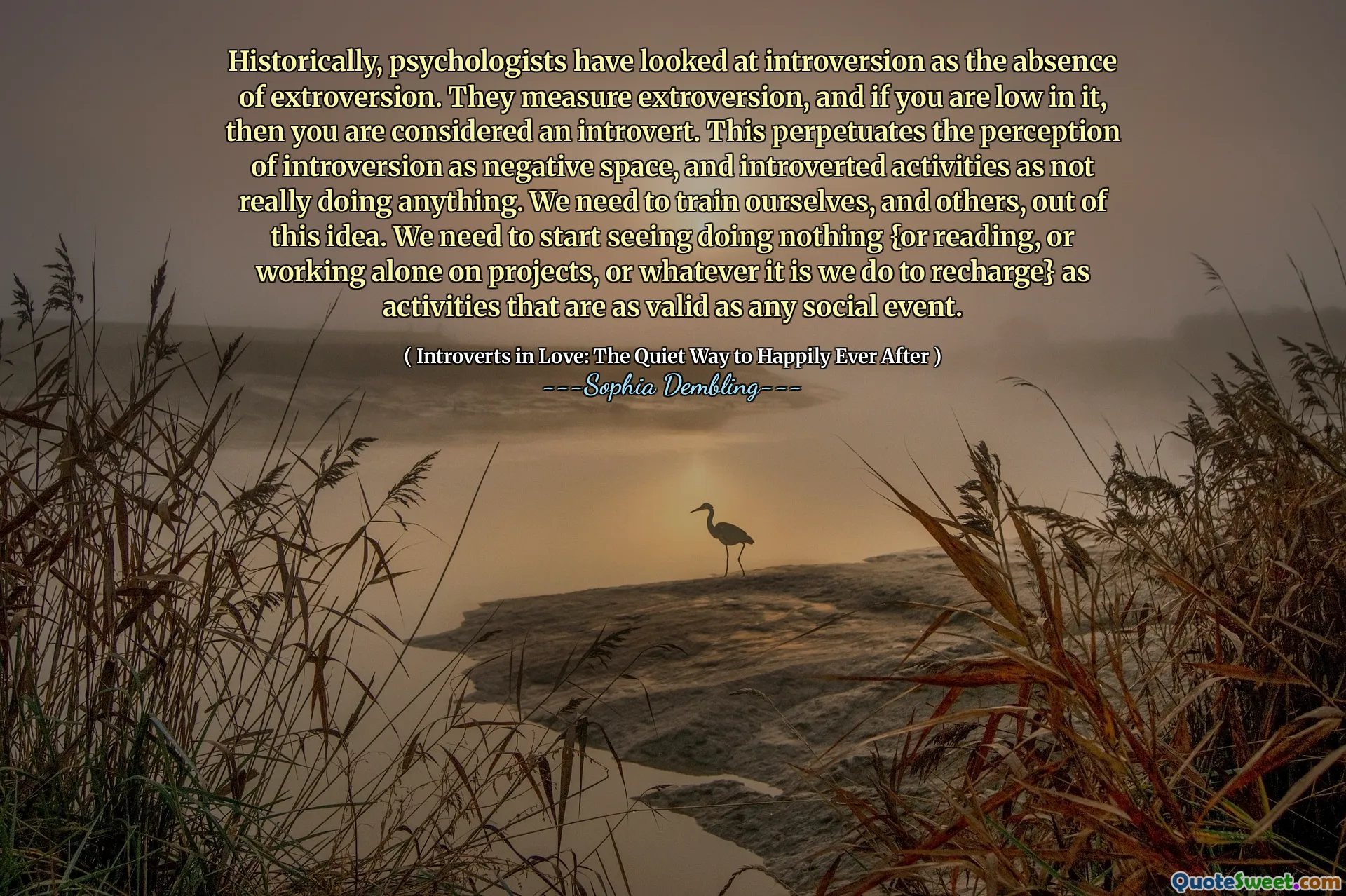
Historically, psychologists have looked at introversion as the absence of extroversion. They measure extroversion, and if you are low in it, then you are considered an introvert. This perpetuates the perception of introversion as negative space, and introverted activities as not really doing anything. We need to train ourselves, and others, out of this idea. We need to start seeing doing nothing {or reading, or working alone on projects, or whatever it is we do to recharge} as activities that are as valid as any social event.
This quote challenges the traditional perception of introversion, emphasizing that activities typically seen as passive or solitary—such as reading, working alone, or quietly recharging—should no longer be viewed as lesser or invalid forms of engagement. The historical tendency of psychologists to equate introversion solely with the lack of extroversion has created a narrow and often negative perception of introverted personalities. Such an outlook equates societal activity with productivity and value, often undervaluing the importance of solitude, reflection, and inner well-being. Recognizing these activities as equally valid is essential for fostering a more inclusive understanding of human temperament. It invites us to reevaluate our biases and paradigms, shifting from a mindset that sees social interaction as the only benchmark for energy and purpose, to one that appreciates diverse ways of recharging and expressing oneself. In practical terms, this shift can lead to greater validation and acceptance of those who prefer solitary pursuits, and it can reduce the stigma surrounding introversion in both social and professional settings. Embracing this perspective contributes to healthier self-perception and promotes a broader, more compassionate view of human behavior. As society moves toward a more nuanced understanding of personality, recognizing the inherent value in all forms of activity—including stillness—becomes increasingly vital for collective and individual well-being.





